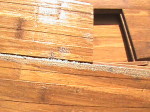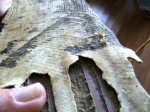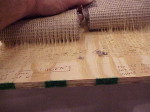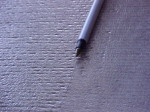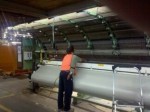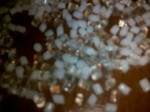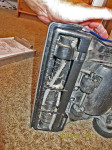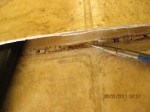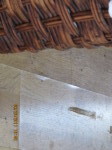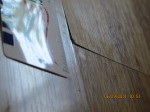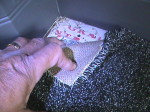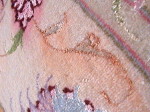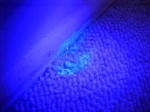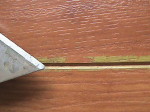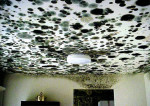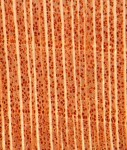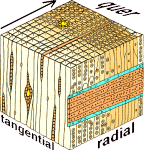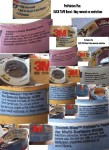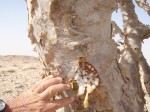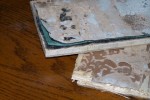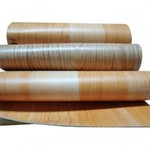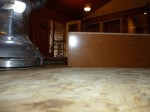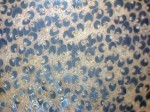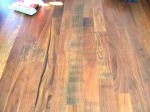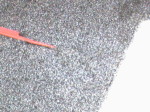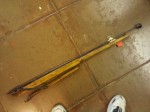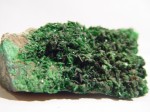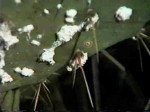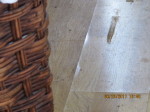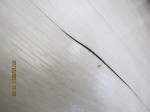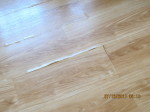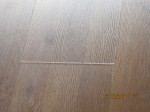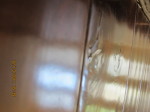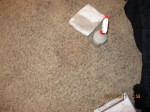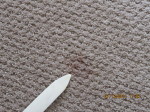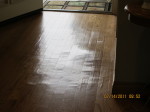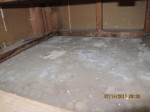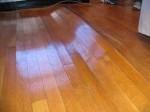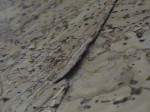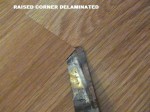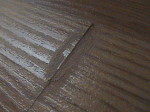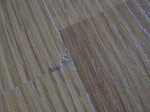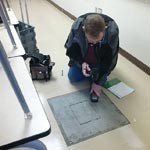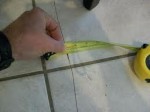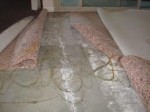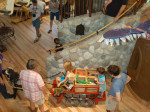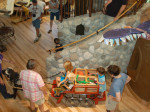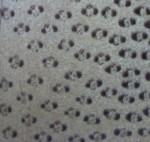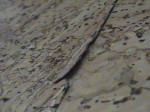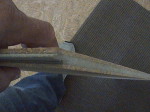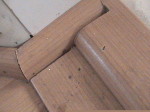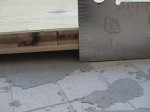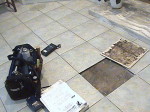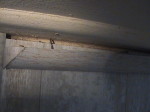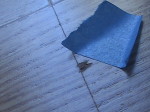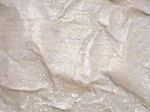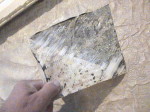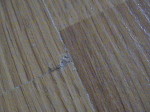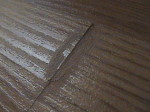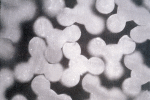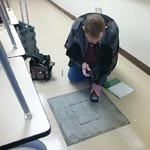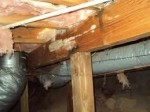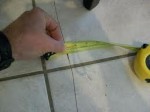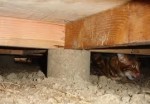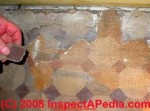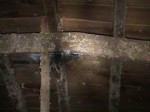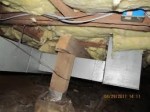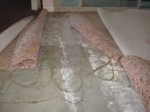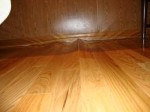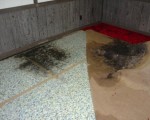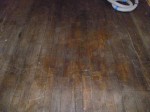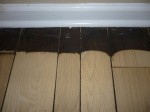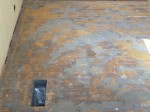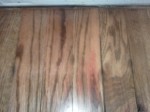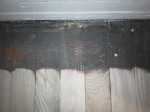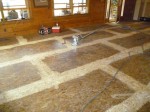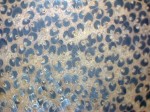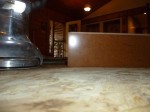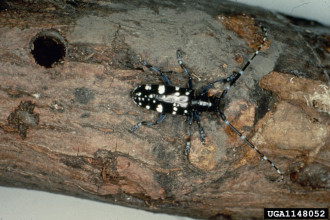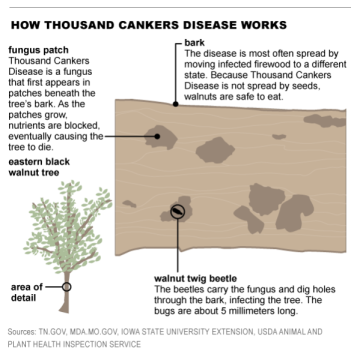Beetles represent the largest Order of insects, containing over 250,000 described species. Beetle groups include tiger beetles, ground beetles, water beetles, whirligig beetles, fungus beetles, rove beetles, stag beetles, scarab beetles, wood-boring beetles, click beetles, fireflies, dermestids, ladybird beetles, darkling beetles, longhorn beetles, blister beetles, leaf beetles, weevils and many others. This giant metallic wood boring beetle from Ecuador has been frequently collected for its superb iridescent wing cases that reflect most colors of the rainbow. The elytra are used to adorn textiles worldwide and represent an exotic decoration without having to use expensive minerals. The Shaur tribes of Amazonia use the beetle to make decorative ornaments symbolizing wealth, well-being and personal power. This large beetle is a strong flier and is often attracted to freshly cut trees.
Keep Asian Longhorned Beetle from Entering Pennsylvania
Agriculture Secretary George Greig today asked the public to
help keep the Asian Longhorned Beetle from entering the state, saying the non-native, invasive wood-boring pest could severely harm Pennsylvania’s $25 billion hardwoods industry.
“The Asian Longhorned Beetle has not yet been found in Pennsylvania, but if it is allowed to enter it could pose a significant threat to the state’s timber, maple syrup and tourism industries,” said
Greig during an event at Ag Progress Days marking August as Asian Longhorned Beetle Awareness Month.“I encourage Pennsylvanians to learn to recognize this pest to help protect our valuable wood
resources that are a vital part of our economy,” Greig added. Greig added that since many species of wood-boring insects, including the Asian Longhorned Beetle and Emerald Ash Borer, can be spread
through transport of infested firewood and logs, campers and homeowners should use only locally harvested firewood, burn all of it on-site and not carry it to new locations. The adult Asian
Longhorned Beetle is three-quarters to one-and-a-quarter inch long, has a jet-black glossy body with 20 white or yellow spots on each wing, and long blue or black and white antennae.
Beetle larvae tunnel through tree stems causing girdling that cuts off the flow of nutrients, eventually killing the tree. Adult beetles leave round exit holes in the tree, resulting in coarse
sawdust at the base of infested parts of the tree. There is no known practical control for this wood-boring pest other than destroying infested trees.
The beetles attack and eventually kill many species of trees, but prefer maple species. Soft (red maple) and hard (sugar maple) trees make up more than 25 percent of Pennsylvania’s hardwood forests.
The beetle also attacks species of ash, birch, buckeye, elm, horsechestnut, poplar and willow trees. As much as $10 billion in lumber and pulp production and $3 million in maple syrup sales are at
risk.
Native to China, Mongolia and Korea, the beetle was first discovered in North America in New York in 1996 and has since been found in Illinois, Massachusetts, New Jersey and Ohio, and mainly in urban
settings. Pennsylvania’s proximity to New York, New Jersey and Ohio raise a concern due to frequent recreational travel by residents. Should the beetle be found in Pennsylvania, the Department of
Agriculture will partner with the U.S. Department of Agriculture Animal and Plant Health Inspection Service’s Plant Protection and Quarantine division and the U.S. Forest Service to implement a
full-scale eradication program. Such a program would entail surveys, imposing quarantines to prevent accidental transport of the beetle, removal and destruction of infested host trees and high risk
trees, as well as outreach and replanting efforts. To report a suspected sighting of Asian Longhorned Beetle, call the Pennsylvania Department of Agriculture’s toll-free pest hotline at
1-866-253-7189 or e-mail badbug@state.pa.us.
For more information about Asian Longhorned Beetle, including photos, visit http://www.dcnr.state.pa.us/forestry/fpm_invasives_ALB.aspx
Agriculture Department Announces Detection of Thousand Cankers Disease in Pennsylvania Trees, Enacts Quarantine to Prevent Spread
Aug. 12, 2011
Harrisburg – Thousand Cankers Disease has been detected for the first time in Pennsylvania, and a quarantine restricting the movement of wood from Bucks County and other states known to have the disease is effective immediately.
The disease is caused when Walnut Twig Beetles, which carry a fungus, tunnel beneath the bark of walnut trees, causing small cankers to form. As more beetles attack the tree, the number of cankers
increases, slowly starving the tree of nutrients and causing the tree to die within 10 years of initial infestation. There is no known cure.
The disease was found on a black walnut tree in Plumstead Township, Bucks County, and reported by the property owner to Penn State Cooperative Extension. The sample was verified by the state and
federal Departments of Agriculture.
“Thousand Cankers Disease poses a significant threat to Pennsylvania’s $25 billion hardwoods industry,” said Agriculture Secretary George Greig. “To help ensure this disease does not spread to other
regions throughout the state, I urge Pennsylvanians to comply with the quarantine restricting the movement of wood from Bucks County.” The quarantine restricts the movement of all walnut material
including nursery stock, budwood, scionwood, green lumber and firewood. It also covers other walnut material -- living, dead, cut or fallen -- including stumps, roots, branches, mulch and composted
and uncomposted chips. Due to the difficulty in distinguishing between species of hardwood firewood, all hardwood firewood is considered quarantined. The quarantine also restricts the movement of
walnut material and hardwood firewood from states known to have Thousand Cankers Disease, including Arizona, California, Colorado, Idaho, Nevada, New Mexico, Oregon, Tennessee, Utah, Virginia and
Washington. Nuts, processed lumber and finished wood products without bark are exempt from the quarantine.
Failure to follow the quarantine order could result in criminal penalties of up to 90 days imprisonment and a fine of up to $300 per violation, or a civil penalty of up to $20,000 per violation.
Since many species of wood-boring insects, including the Walnut Twig Beetle and Emerald Ash Borer, can be spread through transport of infested firewood and logs, campers and homeowners are encouraged
to use only locally harvested firewood, burn all of it on-site and not carry it to new locations.
Thousand Cankers Disease was first diagnosed in walnut trees in Colorado in 2003, and has caused widespread death of black walnut trees in many western states. Other species such as Arizona walnut,
English walnut and California walnut have shown varying degrees of susceptibility to the fungus. Adult walnut twig beetles, native to the southwestern United States and Mexico, carry spores of the
Geosmithia fungus, which is introduced to the tree as they bore under the bark. The beetles are extremely difficult to detect as they are dark brown and similar in size to a poppy seed. Early
symptoms of the disease are yellowing of leaves and foliage-thinning of the upper crown of the tree. As the disease progresses, larger limbs are killed followed by the trunk. The Pennsylvania
Department of Agriculture will work with other state and federal agencies and Penn State to survey for walnut twig beetles to slow the spread of Thousand Canker Disease. Black walnut trees, which
make up less than half of one percent of hardwood trees in Pennsylvania, produce high-valued lumber used in woodworking and furniture-making. The nuts of the trees are consumed by humans and
wildlife. People who suspect they have seen Thousand Cankers Disease or walnut twig beetles should contact their local county cooperative extension office or call the department’s automated toll-free
pest hotline at 1-866-253-7189. For more information about Thousand Cankers Disease, visit www.agriculture.state.pa.us.
VIDEO http://www.knoxnews.com/videos/detail/finding-evidence-of-thousand-cankers-disease
STINK BUG CONTROL
GOT SILVERFISH???









